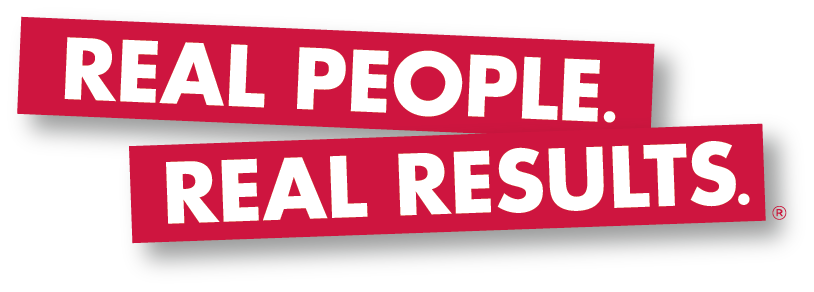With the current economic crisis, running a business is getting tougher. I often hear flustered business owners say things like, “I don’t have enough time to get everything done,” and “How do I become more efficient at time management?”
Time is a limited resource. However, time cannot be managed. What you can manage are the activities that take place over time by defining the desired outcomes and then taking a course of action to reach these goals. Time management is really the conscious management of the decisions as to which actions to take – and that is the core process for effectively utilizing time. It is important to recognize that you have the ability to prioritize and to control your own activities and as the New York architect and teacher Michael Altshuler said, “The bad news is time flies. The good news is you’re the pilot.”
There are a number of tools that can be utilized for controlling your activities related to time, such as, diaries, calendars, Personal Digital Assistants (PDA’s), daily planning sheets, etc. However, it is critical to understand that effective time-management comes from oneself and not from the outside world, like the economy or your competition. It is necessary to honestly recognize that we will be doing some activities that in reality are a waste of time relative to the critical activities that need clarity and focus and generate maximum returns in business.
As a business owner, the process of determining which activities you should be focusing on begins with goal setting. This helps document your personal and business roadmap in levels of detail that represent periods of time.
The bigger picture will be visionary including broad strategies to achieve the vision over a three to five-year period. The next level of goal-setting will be for the upcoming 12 months and this will require documenting specific S.M.A.R.T goals – goals that are Specific, Measureable, Attainable, Realistic and Timely.
The third level involves breaking the 12-month goals down to the activities that need to be achieved over the first 90 days (quarter) to be on track for the 12-month goals. And the final level to provide the foundation for effective control of activities is to break the 90-day goals down to the first week of this period. Then measure the results from the first week and set the activities for the next week.
The idea is to repeat this process each week and at the end of first quarter, re-establish specific goals for the second quarter and repeat the disciplined setting of weekly activities and weekly reviews. Each weekly review and planning session should take about one hour each Monday (or Friday) and should include the business owner and each direct management report to the owner.
The discipline of this process will allow the differentiation of urgent versus important activities. Important activities are those that lead to the achievement of defined goals and provide the most likely chance of achieving the desired outcomes for the business. However, many of the important activities are not urgent.
Pareto’s 80/20 rule applies here as 80 percent of the outcomes will be generated by 20 percent of the activities. Unfortunately, urgent activities tend to be part of the 80 percent of the activities only producing 20 percent of the outcomes. The process discussed in the previous paragraph is designed to help differentiate between important versus urgent activities on a weekly basis. It will help on a routine basis to identify potential conflicts and crises and to facilitate minimizing the number of urgent activities.
The benefits of this disciplined approach to managing activities will be the measureable control of goal-focused activities and the actual completion of targeted goals.
This process will help facilitate the delegation of activities to appropriately skilled staff and will reduce personal stress on everyone in the company from the owner down, and there will be increased productivity and profitability no matter what the external business or economic conditions.
The business owner in particular will have the feeling of being in control of his life and destiny. And the feeling of achievement through personal discipline is very powerful.
Here are seven suggestions to apply personal discipline within the context of achieving better management of business operations and the more effective utilization of your personal time:
- Delegate: Delegate activities to the staff with the appropriate skills. Manage this approach through an organizational structure and individual Positional Agreements appropriate to the size of the organization.
- Prioritize: Prioritize your daily work by reviewing the next day’s important activities in a ‘to do list’ at the end of each day. You can maximize personal productivity by focusing on this list the next day. And don’t do what’s not on the list – resist the urge to be distracted and to do things that you enjoy more.
- Handle each piece of paper only once and never more than twice: Don’t set aside anything without taking action.
- Clean up: Clean up your desk and office shelves once per month. Categorize everything into four groups: ‘Do it’, ‘Delegate it’, ‘Defer it’, and ‘Dump it”. Before getting rid of anything, just ask the question, “What is the worst that can happen if the item was gone?” If the answer is “nothing”, then dump it.
- Put personal interruptions on hold: Put your calls and personal interruptions on hold for one hour, two hours or whatever is appropriate to your task at hand. It is amazing how much work that can be achieved by using this simple technique and not being distracted by a phone call or personal interruption – and most of these potential interruptions will not meet the definition of ‘important’.
- Learn to say “No”: This maybe the most effective way to maximize your personal utilization of time and is often the hardest word to use in business. Make sure that if you don’t say “No,” it is because the activity is important in context of your own role in the business.
- Make sure you set aside personal relaxation time during every work day. Don’t work during lunch. It is neither nutritional nor noble to skip important stress-relieving time or important energy input. Take vacations, particularly mini-vacations. The harder you work, the more you need to balance your leisure and exercise time.
As a business owner, the key to time-management is to build your personal and business life around your individual needs and desired outcomes through planned and measured activities. Time management is, in fact, the ultimate in self-improvement because it is the foundation for achieving your goals in every aspect of your life.
About ActionCOACH
Brad Sugars founded the brand Action International in 1993 when he realized there was a disconnect between business advice and implementation. The answer was Action! Brad Sugars created a business coaching company so that business owners throughout the world can realize their goals in business. Today the company is known as ActionCOACH. To learn more about business, visit Brad Sugars Review blog!






